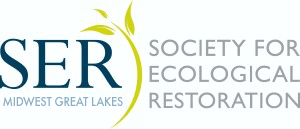Midwest Restoration News Updates
The Cooperative Institute for Great Lakes Research (CIGLR)
Four new partners have successfully competed to join the Cooperative Institute for Great Lakes Research’s Regional Consortium, further expanding CIGLR’s capacity and expertise to understand, predict, and ultimately solve the critical issues facing the Great Lakes and surrounding communities. With the addition of these new partner organizations, the CIGLR Regional Consortium consists of twelve universities, four NGOs, and three businesses who partner with the National Oceanic and Atmospheric Administration (NOAA) in research and development activities that support NOAA’s mission in the Great Lakes.
The four new partners are Cleveland Water Alliance, Lake Superior State University, Michigan Technological University, and Wayne State University. These institutions were selected for membership because each brings a critical new element to the Regional Consortium.
Hosted by the School for Environment and Sustainability (SEAS) at the University of Michigan, CIGLR is a partnership between the National Oceanic and Atmospheric Administration (NOAA), universities, non-governmental organizations, and businesses. Together, we work to achieve environmental, economic, and social sustainability in the Great Lakes. CIGLR consists of a Research Institute and a regional consortium.
Impacts of Climate Change on the Great Lakes
According to a recent report by the Chicago-based Environmental Law and Policy Center,
“Climate change is causing significant and far-reaching impacts on the Great Lakes and the Great Lakes region. In recent years, our planet has experienced, some of the warmest temperatures ever recorded, record-breaking weather extremes, powerful storms, increasing tragic flooding from rising sea levels and associated storm surge, huge wildfires, and continued melting of glaciers and polar sea ice. The accelerating pattern of changes in the Earth’s climate is affecting the Great Lakes.”
The report summarizes the threats to the Great Lakes posed by climate change:
“The Great Lakes contain 21% of the world’s fresh water. About 34 million people rely on them for drinking water, jobs, recreation and their way of life. But heavy human use over the past two centuries has taken its toll in the forms of habitat loss and fragmentation, influxes of invasive species, and polluted air, water, and sediments. Soil and nutrient runoff from agricultural fields and concentrated animal feedlot operations (CAFOs) imperil water quality and wildlife populations in many parts of the basin, threatening public and wildlife health and the economic vitality of the region. Climatic changes now underway further stress these ecosystems, alternately raising and lowering lake levels and threatening the region in new ways.”
Download the full report here
Practical Farmers of Iowa
Mary Damm, newly-elected Vice-President of the SER Midwest Great Lakes Chapter has been named to the newly-formed Habitat Program Steering Committee of the Practical Farmers of Iowa.
Practical Farmers of Iowa’s mission is equipping farmers to build resilient farms and communities. Practical Farmers of Iowa is an inclusive organization representing a diversity of farmers. Farmers in our network raise corn and soybeans, hay, livestock large and small, horticultural crops from fruits and vegetables to cut flowers and herbs, and more. Our members have conventional and organic systems; employ diverse management practices; run operations of all sizes; and come from a range of backgrounds. These farmers come together, however, because they believe in nature as the model for agriculture and they are committed to moving their operations toward sustainability.
The Habitat Program comes as Practical Farmers of Iowa is broadening its definition of farming to include a variety of approaches to land stewardship, including engaging with those of us who–like Mary Damm, who is both a farmer and a restoration ecologist–practice ecological restoration.
